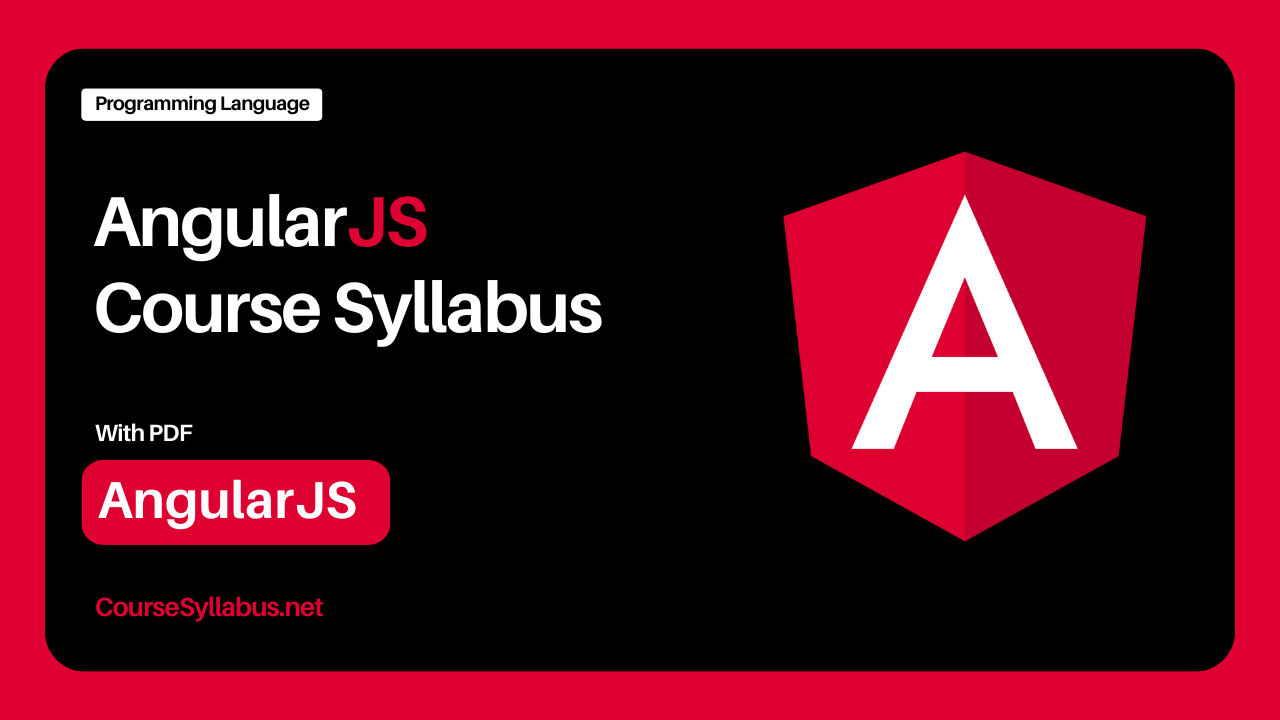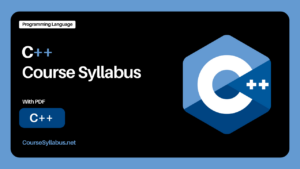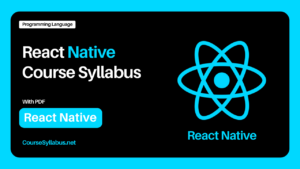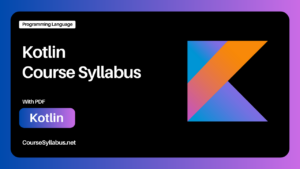AngularJS is an open-source JavaScript framework developed and maintained by Google. It’s designed to simplify the development and testing of single-page applications (SPAs) by providing a structured framework for building dynamic web applications.
AngularJS Course Syllabus
Module 1: Introduction to AngularJS
- Overview of AngularJS
- Setting up development environment
- Introduction to AngularJS components: Directives, Controllers, Services
- Getting started with AngularJS project structure
Module 2: AngularJS Components
- Understanding AngularJS components in depth
- Creating and using directives
- Implementing controllers to manage application behavior
- Exploring built-in and custom services
Module 3: Data Binding and Templating
- Understanding data binding in AngularJS
- Two-way data binding vs. one-way data binding
- Using expressions and filters
- Templating with AngularJS directives (ng-repeat, ng-if, etc.)
Module 4: Routing and Navigation
- Implementing client-side routing with AngularJS
- Setting up routing configuration
- Navigating between views
- Passing parameters to routes
Module 5: Forms and Validation
- Working with forms in AngularJS
- Implementing form validation using built-in and custom validators
- Handling form submissions and form events
- Using ng-model to bind form data to the model
Module 6: Services and Dependency Injection
- Understanding services and dependency injection
- Creating custom services and injecting them into components
- Sharing data between components using services
- Exploring built-in AngularJS services (e.g., $http, $q)
Module 7: Directives and Custom Directives
- Creating custom directives in AngularJS
- Understanding directive scope and transclusion
- Implementing reusable components with directives
- Best practices for directive development
Module 8: Testing AngularJS Applications
- Introduction to testing AngularJS applications
- Writing unit tests with Jasmine and Karma
- Mocking dependencies and services for testing
- End-to-end testing with Protractor
Module 9: Advanced Topics
- Advanced AngularJS features and concepts
- Working with animations and transitions
- Internationalization and localization in AngularJS
- Performance optimization techniques
Module 10: Deployment and Best Practices
- Preparing AngularJS app for deployment
- Optimizing production builds
- Best practices for AngularJS development
- Code organization and project structure guidelines
Key Features of AngularJS
- MVC Architecture: AngularJS follows the Model-View-Controller (MVC) pattern, simplifying application organization.
- Two-way Data Binding: Automates synchronization between the model and view, reducing manual DOM manipulation.
- Directives: Extends HTML with custom directives for dynamic behavior and reusable components.
- Dependency Injection: Manages component dependencies for modularity, testability, and code reuse.
- Routing: Facilitates seamless navigation between views in SPAs, enhancing user experience.
- Testing Support: Provides tools like Jasmine and Karma for robust unit and end-to-end testing, ensuring application reliability.
AngularJS Learning Resources
There are many resources available for learning Angular JS ranging from online tutorials and courses to books and interactive platforms. Here are some popular options:
Time for Learning AngularJS
- Basic Familiarity (2-4 weeks): With prior web development knowledge, grasp AngularJS basics within a few weeks. Focus on data binding, directives, and controllers.
- Intermediate Level (1-2 months): Spend a month or two building projects and exploring services, routing, and form validation for proficiency in AngularJS.
- Advanced Mastery (3+ months): Achieve mastery with several months of practice. Explore topics like custom directives, dependency injection, and testing while staying updated with AngularJS advancements.
AngularJS Developer Career Opportunities
- Web Development Companies: AngularJS developers find opportunities in agencies and firms specializing in web development.
- Tech Giants and Startups: AngularJS is used by major companies and startups for innovative projects and enterprise-level applications.
- Freelancing and Consulting: AngularJS experts can freelance or consult globally, offering specialized solutions to clients.
- Remote Work: AngularJS developers enjoy flexibility with remote positions, collaborating with distributed teams.
- Education and Training: Experienced developers can teach, create tutorials, and contribute to educational platforms.
- Open Source Contributions: Developers can enhance skills and reputation by contributing to the AngularJS open-source community.
- Entrepreneurship: AngularJS developers can start agencies, build products, or create services catering to businesses.
Conclusion:
In conclusion, AngularJS opens doors to diverse career paths in web development. From traditional employment to freelancing, remote work, education, and entrepreneurship, AngularJS developers have abundant opportunities. With its widespread adoption and strong community support, AngularJS offers a dynamic and rewarding career landscape.




